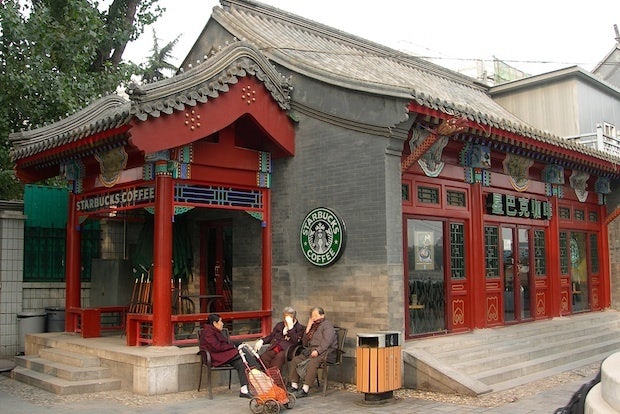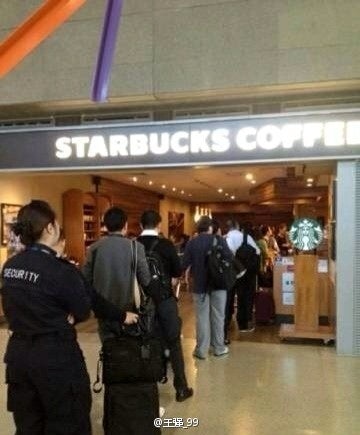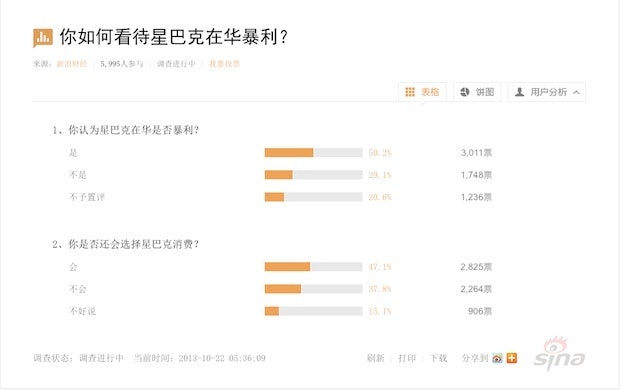
Starbucks in Beijing. (David Gómez-Rosado/Flickr)
After going after Apple earlier this spring, state-run media outlet CCTV set its sights on Starbucks on Sunday with a hard-hitting exposé on an issue that it deemed of crucial importance to the lives of Chinese consumers: latte prices.
According to the report, a medium-size latte in Beijing costs roughly one-third more than it does in Chicago in the United States, a price policy that Wang Zhendong, director of the Coffee Association of Shanghai, said on the program was a result of the “blind faith of local consumers in Starbucks and other Western brands.”
This new critique of a foreign company follows the pattern of CCTV's assault on Apple earlier this year. And, as with the Apple debacle, the reaction on microblogging platform Sina Weibo reaction seems to show that the plan may have backfired for CCTV, since Starbucks may be more popular than ever now. A comment by “big V” user @ 王强_99 shows a picture of a long line outside a Starbucks location, sarcastically stating, “We severely denounce CCTV for giving Starbucks all this free advertising!” He also states, “Thank you CCTV for finally standing up for everyone’s human rights!”Meanwhile, @snake76 proclaims, “First they gave Apple free [advertising]; now they’re giving it to Starbucks.”

A photo of a line outside Starbucks in China posted by a Sina Weibo user after CCTV's report criticizing the company's price policies.
According to a Chinese-language BBC article, the majority of Weibo users were not impressed by the report. One Starbucks fan stated, “CCTV ought to focus on the actual problems of the people,” calling on the media outlet to report more on the prices of basic necessities, healthcare costs, corruption, and pollution. “If all of these problems didn’t exist, then CCTV could chat about Apple and Starbucks in the meantime!” Meanwhile, Qinghua University economics professor Li Daokui stated, “CCTV has oversimplified the question, and turned the issue into a matter of ideology,” arguing that the report wasn’t asking the right in-depth questions about why it was more expensive.
This time around, the "big V" users who had likely been paid off to criticize Apple were silent about Starbucks, especially Taiwanese star Peter Ho. However, a two-question survey taken by Sina after the program aired found that almost exactly half of the respondents stated that they believe Starbucks is making enormous profits. The report may have had an impact on the spending habits of the group surveyed, as 37 percent said they will no longer visit Starbucks.

There's also the possibility that the high prices may give the coffee shop more cachet by making it seem like a venue for more affluent customers. Starbucks is known more in China as a location to sit and relax with friends than it is in the United States, where it serves mainly as a pit stop on the way to work. However, that perception may be changing as global competitors such as Italian roaster illy are moving in on the market and trying to position themselves as more upscale by collaborating with Chinese artists and holding events such as performances and cultural talks. No matter what, is clear that with the government's focus on foreign brands that get too big, all foreign corporate giants will be watching over their shoulders in China in the years to come.
Angela Hou contributed to this report.